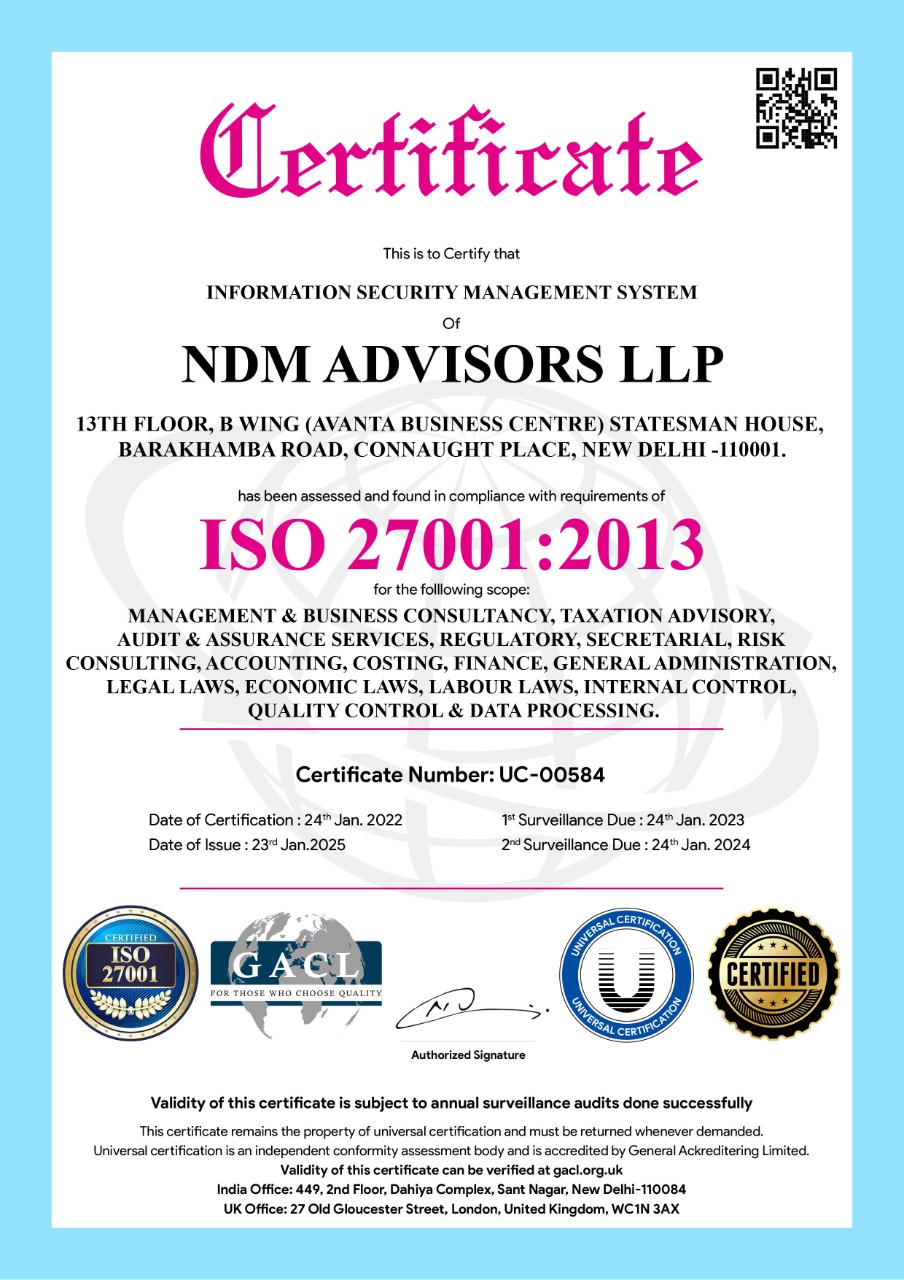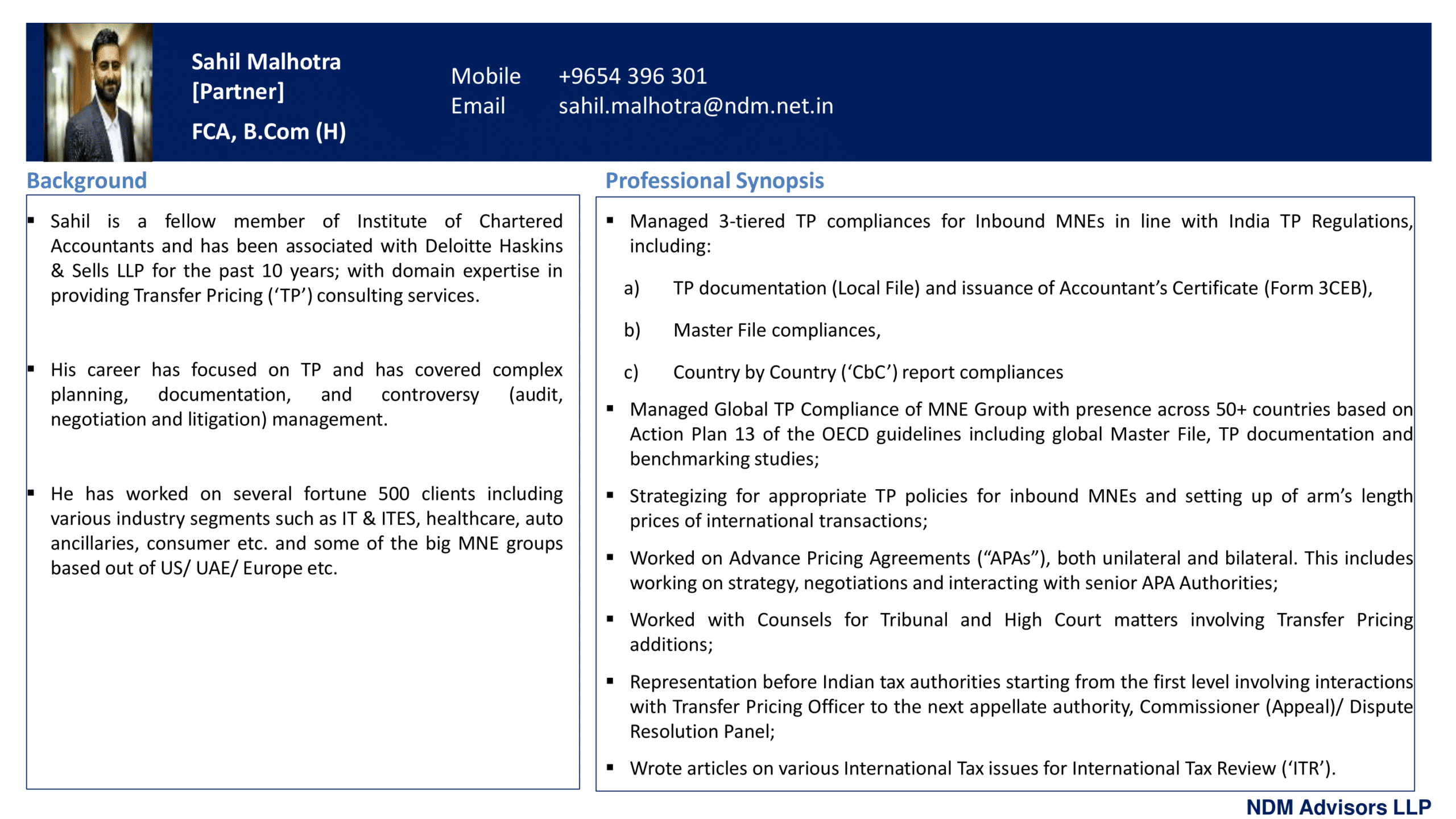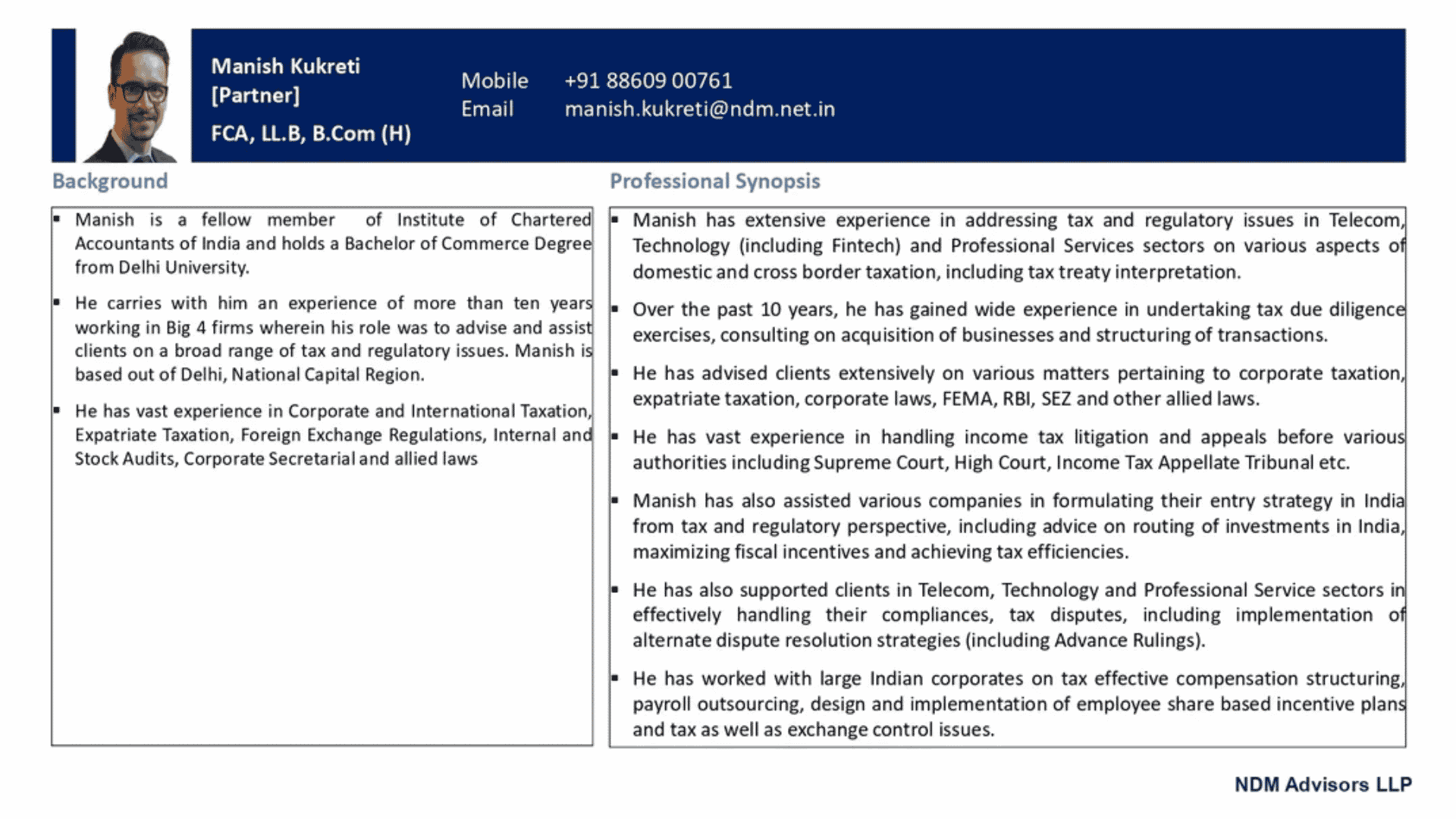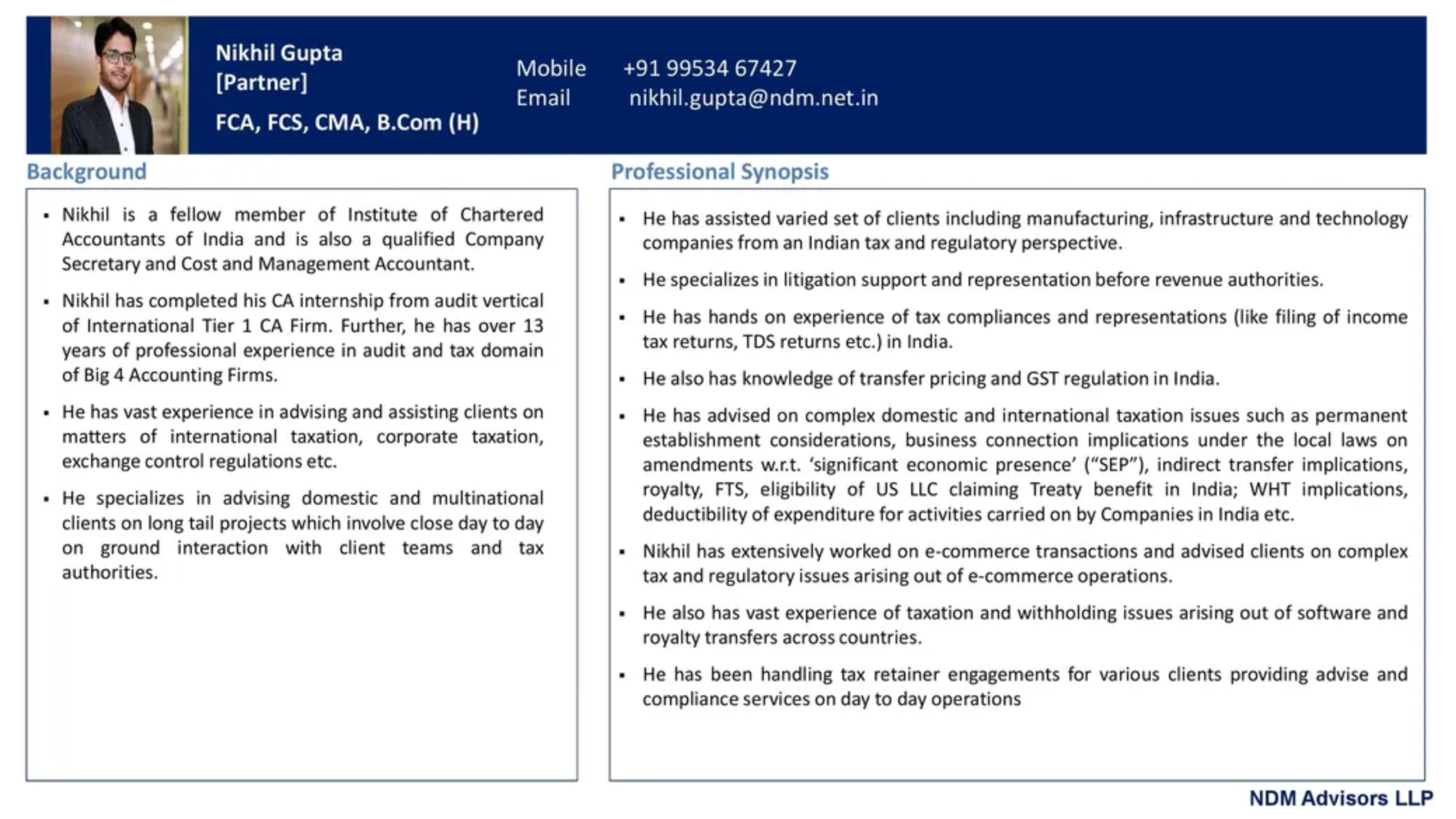MasterCard Ruling- A Substantialist Approach

In this era of accelerated globalisation, tax has been high on the political agenda of the multinational entities. Globalisation, inter-alia brings in inter-country mobility of corporate presence, employees, technology, intellectual property, know-how etc. With increased cross border movement of such elements comes in the host country tax consequences attached to them, most controversial one being Permanent Establishment (‘PE’). In determining PE of an entity in a host country, Transfer Pricing and Functional Analysis play an important role. The recent ruling of MasterCard Asia Pacific Pte. Ltd., Singapore (‘Applicant’) -AAR No. 1573/2014 pronounced by Authority for Advance Ruling (‘AAR’) has added to the spate of litigation on PE issue in India. The ruling is unique as the AAR has dealt with the concept of functional analysis and its importance in post restructuring scenario.
In the said ruling, AAR has adopted a functional and substantialist approach with regard to the post-restructuring scheme involving fragmented functional structure for carrying out relevant economic activities in India. Though in this ruling, the AAR has held that the Applicant has fixed place, service and dependent agent PE in India, however, this article deals with the aspect of PE being held on account of the functions performed by Indian subsidiary of Applicant.
Peculiarity of this ruling lies in the fact that post restructuring of the business operations, same functions were performed in India, however, under the garb of support activities as per the functional analysis of the entity. Pre restructuring, 100% of income from transaction processing activities was attributed to India operations and a 50% net profit rate was applied. Accordingly, pre restructuring, 50% of revenue was offered to tax, however, post restructuring, this was reduced to around 2.5%.

Below are the relevant facts that highlight the modus operandi pre and post restructuring:
Pre 1st December 2014:
- MasterCard International Incorporated (‘MCI’), one of the overseas group entities was operating through a Liaison Office (‘LO’) in India which owned MasterCard Interface Processor (‘MIP’). MIP was located at customer’s (mainly banks and financial institutions) premises in India and connected MasterCard’s network and processing centres.
- MCI entered into Master License Agreements (‘MLA’) directly with Indian customers.
- For a period of ten fiscal years till 1st December 2014, LO had admitted a PE in India and income from Transaction Processing Services was attributed in India at 100% at global net profit rate (50%).
Post 1st December 2014:
- LO was shut down and the employees of the LO and work performed were transferred to MasterCard India Services Private Limited (‘Indian Subsidiary’).
- MIPs continued to remain at premises of the Indian customers and same functions were performed as prior to 1st December 2014.
- MIPs placed at customer location were owned and maintained by the Indian Subsidiary.
- Services were provided by the Applicant to customers under MLA between customers and Applicant.
- The Applicant entered into service agreements with the Indian subsidiary for rendering various services like marketing and liaison services, transaction processing support services via MIPs, advisory services and authentication services. In consideration thereof, the Indian Subsidiary earned services fee from the Applicant.
- As per the MLA, Applicant charges the customers transaction processing fee (for authorisation, clearance and settlement of transactions), assessment fees (for building and maintaining a processing network) and miscellaneous revenue (for ancillary services). Such services were carried from outside India by the Applicant.
- No income shown in hands of MCI or the Applicant and only support services shown to be carried on by the Indian Subsidiary.

In view of the aforesaid facts, it was noted by the AAR that the Applicant was performing the same set of functions under similar arrangements. The very same activities which were creating PE for MCI in India and for which full attribution of revenue out of transaction processing services was being done prior to 1st December 2014 were being shown as mere support activities post 1st December 2014 in the functional profile.
The AAR held that functions and risks related to transaction processing services were carried out in India by MCI prior to 1st December 2014 are still carried out by the Indian Subsidiary. Accordingly, it was held that the Indian Subsidiary created a PE of the Applicant in India and the facility, service, personnel and premise of Indian Subsidiary were at the disposal of Applicant to the extent work of Applicant was being carried out by the Indian Subsidiary and the same constituted Applicant’s PE in India. It was also noted that the transaction processing services being performed by the Indian Subsidiary were not reflected in the functional profile of Indian Subsidiary.

Way Forward for India Inc
The ruling has important practical implications from a functional analysis perspective as it marks deviation of the Indian revenue authorities from the legalistic approach as followed by the multinational entities having presence in multiple tax jurisdictions. Indian revenue authorities have given a clear message that tweaking the functional profile of Indian subsidiary in order to support the tax position would no longer remain a viable option of tax evasion. The taxpayers need to be cautious of the fact that their transfer pricing documentation reflects the correct picture of functions performed and the corresponding risks assumed by the enterprise in India. Non-reporting of the appropriate functional profile or disguising the critical functions under the garb of ‘support services’ from India transfer pricing perspective may lead to severe consequences as clear from the AAR Ruling.
The ruling also highlights the gravity of having sound functional analysis and transfer pricing documentation in a post restructuring scenario. Accordingly, multinationals planning restructuring of their global or India level activities must be cautious of the deviations in functional profile of India based operations pre and post restructuring. Also, the enterprises that have recently concluded the restructuring of their business operations or are in the process of restructuring must review their post restructuring functional profile so as to ensure that the deviations (if any) in the functional profile are duly supported by back-up documentation and analysis.
In case of queries, drop us a line on communications@ndm.net.in
Have Any Question?
Send us a message and tell us more about your business and financial goals. We will get back to you soon to schedule a consultation.
- +91 9873210394
- Communications@ndm.net.in


















